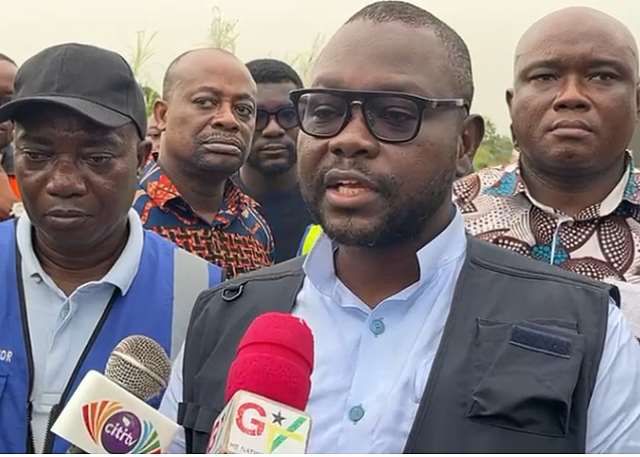The debate surrounding the dualization of Ghana’s major road corridors has taken center stage in the country’s political discourse, with the New Patriotic Party (NPP) asserting its pioneering role in this crucial infrastructure development. Francis Asenso Boakye, the immediate past Minister for Roads and Highways, has emphasized the NPP’s commitment to this vision, tracing its origins back to the era of President John Agyekum Kufuor. He highlighted the strategic importance of dual carriageways in easing traffic congestion and stimulating economic growth, citing the Kufuor administration’s initial efforts in dualizing sections of the Accra-Kumasi highway as a testament to their foresight.
Boakye contrasted the NPP’s proactive approach with what he described as the National Democratic Congress (NDC)’s neglect of the dualization agenda during their eight-year tenure. He alleged that projects initiated by the NPP were stalled, existing roads deteriorated, and calls for continuity were disregarded. This claim directly challenges the NDC’s narrative and positions the two parties in stark contrast regarding their commitment to infrastructure development.
President John Dramani Mahama’s recent announcement of prioritizing the dualization of key highways, including the Accra-Kumasi, Accra-Takoradi, and Accra-Aflao corridors, under the “Big Push” infrastructure program, has further fueled the debate. While welcoming the move, Asenso Boakye insisted on acknowledging the NPP’s foundational role in conceiving and initiating the dualization agenda. He urged the current administration to prioritize the completion of ongoing bypass projects, emphasizing their integration into a broader, long-term national strategy envisioned by the NPP.
The NPP’s narrative underscores their commitment to a comprehensive approach to road infrastructure development. They highlight the dualization of critical sections like Circle-Achimota, Nsawam, Nkawkaw, and Ejisu-Kumasi under President Kufuor as evidence of their early recognition of the need for improved road networks. These projects, they argue, yielded tangible benefits by reducing travel times and boosting economic activity.
The NPP’s narrative also emphasizes the revival and expansion of the dualization agenda under President Akufo-Addo. Projects like the Ofankor-Nsawam dualization and the construction of four strategic bypasses at Anyinam, Osino, Enyiresi, and Konongo are presented as evidence of their continued commitment to improving road infrastructure. These projects, they claim, are designed to alleviate congestion in towns, enhance road safety, and facilitate the smooth flow of goods and people. The construction of the Pokuase Interchange, Ghana’s first four-tier interchange, is cited as another significant achievement demonstrating their dedication to modern infrastructure development.
The NPP frames their contribution to the dualization agenda as a continuous, long-term vision, contrasting it with what they portray as the NDC’s intermittent approach. They maintain that even under the challenging fiscal conditions following the COVID-19 pandemic, the NPP remained committed to their infrastructure goals. While acknowledging President Mahama’s renewed focus on dualization, the NPP insists on recognizing their pioneering role and urges continuity in implementing the existing long-term strategy they initiated. They express support for genuine development efforts but stress the importance of accurately attributing the origins of the dualization agenda to the NPP, advocating for transparency and acknowledging their contribution to Ghana’s infrastructure development.














